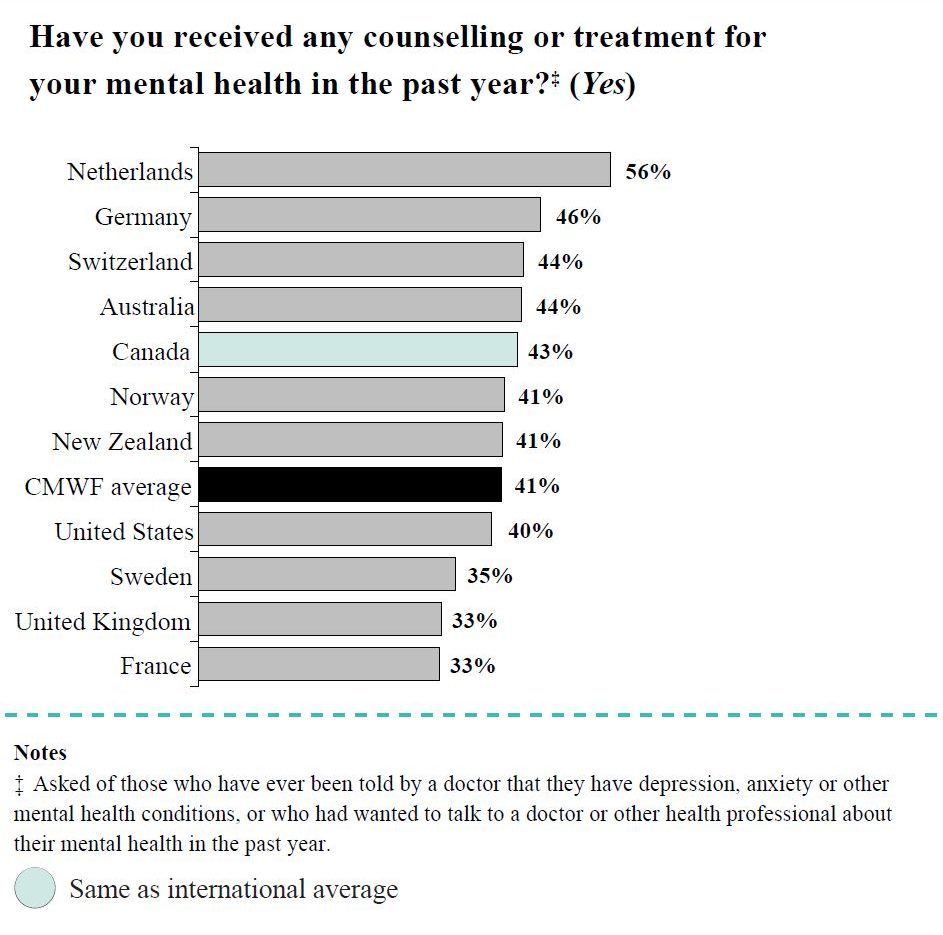The following is from the Canadian Institute for Health Information, an independent, not-for-profit institution that provides data and information to accelerate improvements in health care, health system performance and population health across Canada.
The 2020 Commonwealth Fund’s International Health Policy survey focuses on the views and experiences of the general population age 18 and older. The annual survey, which polled patients and providers in 11 developed countries, for the first time included comparable information about behaviours affecting health (use of alcohol, tobacco, electronic vaping devices, cannabis and illicit drugs). Other topics covered include cost barriers to care, coordination of care and patient experience.
The Canadian Institute for Health Information released How Canada Compares, which uses survey data to compare the responses of Canadians to those of people in other countries. Here are some key findings:
- Mental health: Fewer than half of Canadians who wanted help for mental health concerns received services. Canadians with mental health conditions reported higher cost barriers to care and financial distress compared with those without mental health conditions.
- Vaping: Five per cent of Canadians reported having used electronic vaping devices (e-cigarettes). The rate was highest among 18- to 34-year-olds (11 per cent) and lowest among those 35 and older (3 per cent).
- Cannabis: More Canadians reported having used cannabis than their international peers (23 per cent versus nine per cent). This is higher than the Commonwealth Fund average but similar to states in the United States where cannabis is legal for recreational use.
- Heavy drinking: One out of four Canadians reported heavy drinking at least once a month. Further, only nine per cent of respondents in Canada who reported heavy drinking said they’d had a discussion with their health care provider about alcohol use.
- Access to virtual and in-person care: Access continued to be challenging in Canada, with patients reporting difficulties with timely access to in-person care. Improvements have been made in access to virtual care but there is still a gap between services physicians report having available and services patients report using.
The complete report is available on the Canadian Institute for Health Information site at https://www.cihi.ca/en/commonwealth-fund-survey-2020.




The comments section is closed.